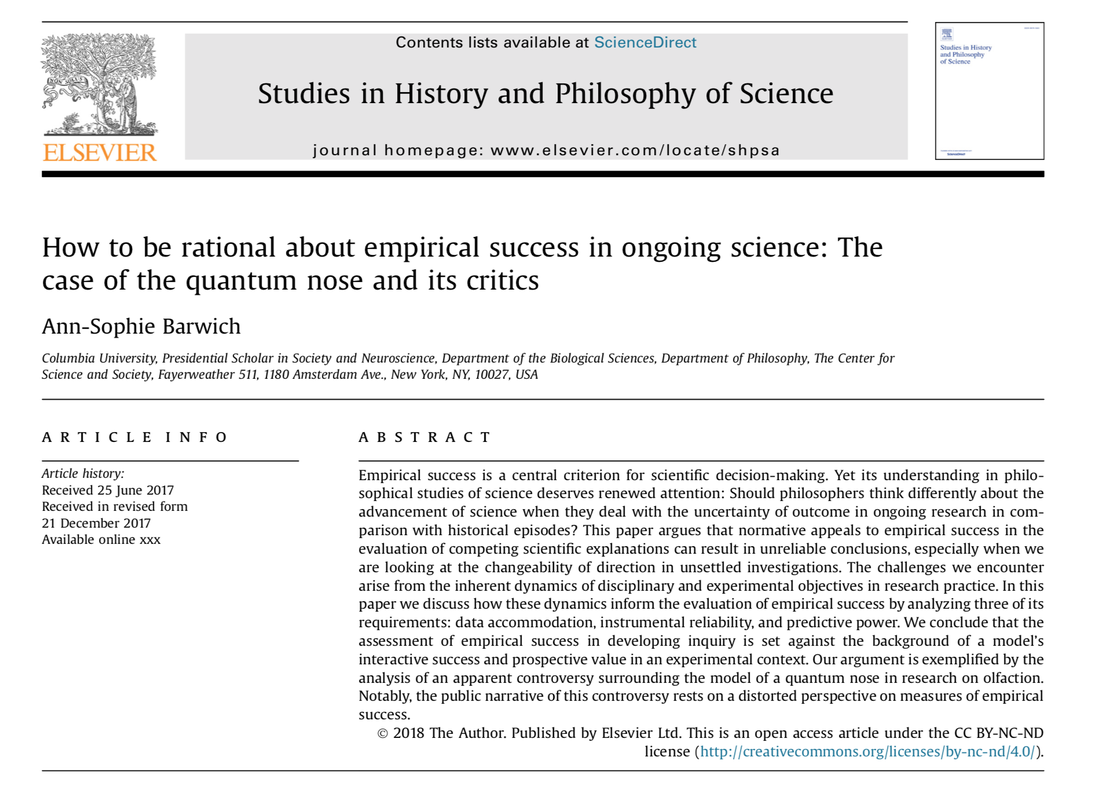|
In my new article in Studies in History and Philosophy of Science (Open Access)
"How to be rational about empirical success in ongoing science: The case of the quantum nose and its critics" I ask a seemingly simple question: Should philosophers think differently about the advancement of science when they deal with the uncertainty of outcome in ongoing research? The answer is - emphatically! -yes! Moreover, such difference actually matters. Because the answer to this question reflects our reasons for when we change our minds about an idea or scientific theory. (Like: When is a theory simply delayed in its success, or is something else maybe going on?) That our understanding (and the epistemology) of ongoing research has practical implications can be seen most vividly in our science narratives and science writing. To demonstrate this, I look at an apparent controversy surrounding the sense of smell: The story of the quantum nose and its critics. Spoiler alert: “there never was a genuine scientific controversy in olfaction as painted in public and philosophical discourse.”
0 Comments
Your comment will be posted after it is approved.
Leave a Reply. |
AuthorAnn-Sophie Barwich Archives
July 2024
Categories |

 RSS Feed
RSS Feed